The rise of women’s movements such as the #MeToo campaign and increasing awareness of mental health issues specific to men has highlighted the prevalence of toxic masculinity all over the world.
Toxic masculinity, a variation of masculinity, refers to the socially-constructed attitudes that describe the masculine gender role as violent, unemotional, sexually aggressive, and so forth. It restricts the kinds of emotions and characteristics that are socially acceptable for boys and men to express. Toxic masculinity is a variation of masculinity that has become the standard upon which the “real man” is defined but also by which ones masculinity can be challenged (The Good Men Project).
These qualities are socially imposed on men from early stages in life and our culture doesn’t always allow them to express their inner struggles without judgment. Therefore, boys grow up with the pressure to embody what society believes is ‘normal’. That said, failure to embrace these ‘manly’ qualities often renders harsh consequences, not only for men themselves but those around them. For example, it may have a negative impact on their own mental health, possibly leading to depression, substance abuse, and suicide as well as aggressiveness, objectification, and violence towards not only women but other men as well, homophobic and transphobic sentiments and so on.
This topic is no more relevant today than it has been in the past, the only difference is that now it is being discussed more openly. My intent with this photo series is not to create anti-male sentiments or attack masculinity but, show that it’s so important to speak up and fight stigma. Men too face a great deal of pressure to measure up to expectations created by the system that has long catered towards patriarchy.
I by no means claim to be an expert on this subject. However, I wanted to create a diverse collective of men who believe it’s okay to possess and express the qualities and characteristics that they are told they shouldn’t. I hope that these ideas will spread and reach the men who are struggling to accept that things like emotional vulnerability and compassion are strengths and not weaknesses. I know many men are already acting as incredible role models and that should be celebrated. I believe men should hold each other accountable. It is the words and voices of men alone that will influence and encourage other young men to think about their actions and reject the toxic masculinity that they may be surrounded by.
More info: jessicaamity.com
Denom, Nepal
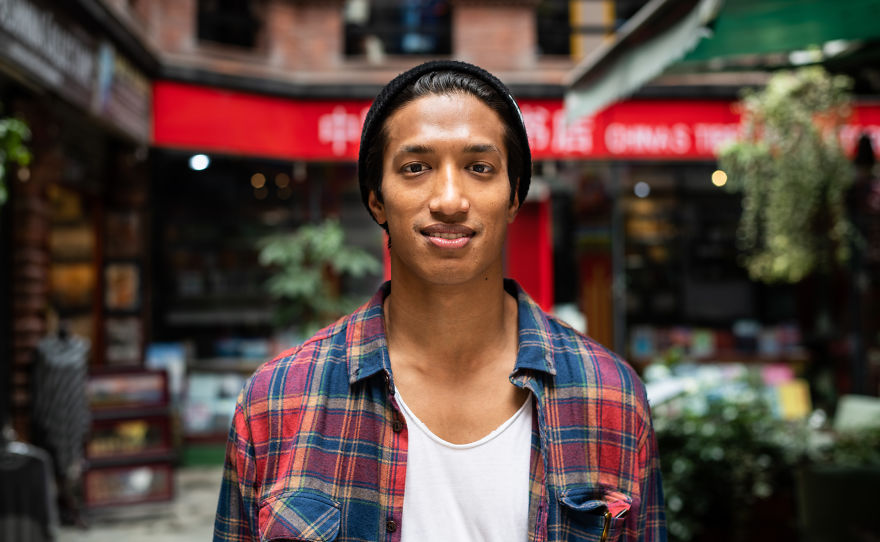
“It’s ok for me to show my emotions and cry. There is nothing wrong with showing your soft side. We all are humans and these feelings are completely normal. It is not wrong for men to cry at all! In fact, I would say it is vital for men to cry, to let their emotions out and share their feelings with others. There are cultures where men are not supposed to cry or at least hide their weaknesses, it’s better if they seem more controlled and emotionally numb. People think if we cry we’re linked to weakness since we can’t take control over our emotions. We hear phrases like, “Don’t be a pussy”, “Stop being a girl” a lot. If we keep hearing phrases like these, what do boys all around the world think about being boys today? Whom will they look up to, and how will they navigate the transition from being boys to becoming men?”
Nils, France
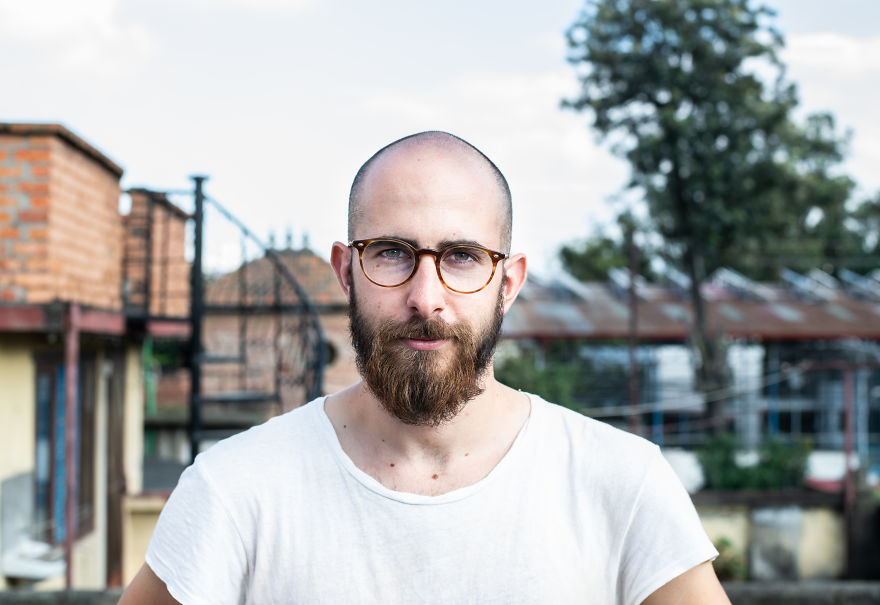
“It’s okay for me to wear pink. I don’t think colors should be meant for a specific gender, and it’s annoying to feel we must limit our choices for such reasons.”
Peter, USA

“It’s okay for me to be who I am, warts and all. I mean that figuratively (I have nothing against dermatology). I think “toxic masculinity” is rooted in men’s insecurities. If I were to give advice to my younger self about what it means to be a good man, I think the main thing would be this: care less about what others think, judge others less, and learn more. Don’t worry about maintaining that practiced disheveled look, or about how many parties you’ve been to, or about your experience (or lack thereof) dating girls, or about how you’re perceived because of who your parents are. Don’t presume to know what motivates others, for there is much to human nature and the world that you don’t understand (and may never understand). Life is a constant learning process. Forgive others because sometimes you’ll need to be forgiven too. Get to know as many different kinds of people as you can and learn from them.”
Sonam, Tibet
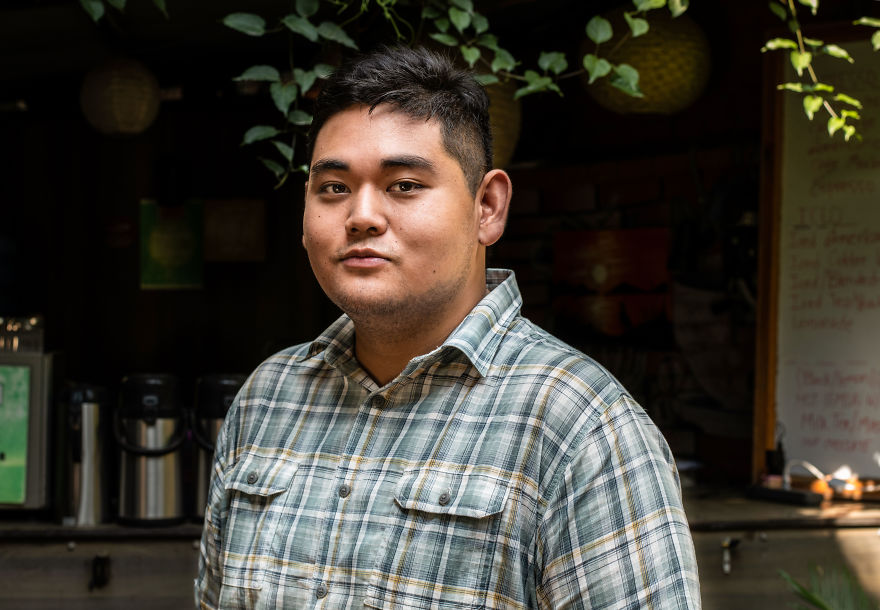
“It’s okay for me to disregard and denounce some of my cultural traditions and values if they are rooted in sexist ideologies and prejudice. This way of thinking would perpetuate the world in which male chauvinism and misogyny will continue to run rampant, a world in which my mother, sisters and potential daughters must live.”
Jason, Belgium

“It’s okay for me to not compare the differences between men and women. We are all human and that is all that should matter”.
Naryan, Northern Ireland/Nepal

“It’s okay for me to be vulnerable. I believe we are all made up of masculine and feminine energies. The masculine becomes toxic when it doesn’t allow itself to feel and when it responds to hurt with aggression rather than understanding. It’s hard to be vulnerable, especially because the hurt is deeper when you are; but real men can be vulnerable and can be hurt, and it’s okay.”
Geoff, Canada
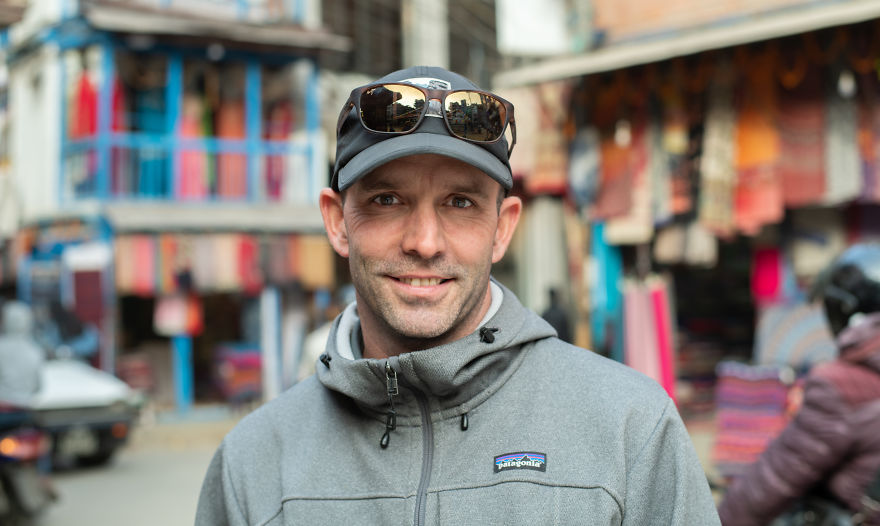
“It’s okay for me to cry. I’m a cryer. For example, today I visited the sacred Pashupathinath temple in Kathmandu and just cried. I get emotional and that’s okay.”
Sam, Australia/UK

“It’s ok for me to acknowledge the role men have played in establishing the system that does not value women as much as men, and the responsibility men have in changing this reality. Its ok for me to acknowledge that when we talk about ‘violence against women’ we are talking about violence that is being perpetrated by men. It’s ok for men, like me, to take a stand – to step up and speak up – to alter the expectation of what it means to be a ‘man’.”
Bastien, France

“It’s okay for me to be open-minded towards the relationships of men and women. Men and women can lead their lives on equal terms”.
Thomas, Belgium
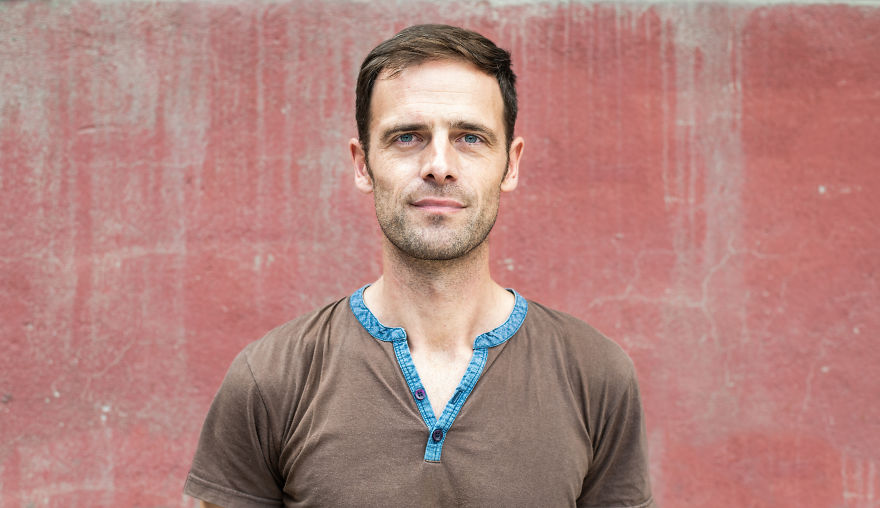
“It’s ok for me to be sensitive to intersectionality and to be an ally in fights for social justice, because, as a CIS white gay male, I am bombarded with privilege that I definitely don’t deserve.”
Zach, USA

“It’s okay for me to be the little spoon. Men like being cuddled too.”
Luke, Australia/UK

“It’s ok for me to offer a victory to others, even when I believe I’m right. Taking a lower step does not just have to be a sign of humility, but also of strength.”
Yanik, Nepal
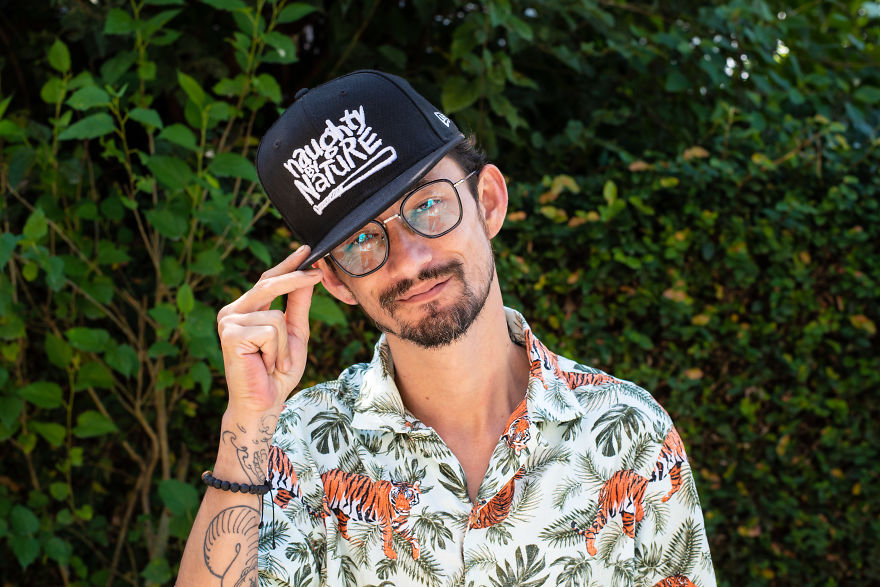
“It’s okay for me to be a stay-at-home husband. Coming from a society that is so steeped in patriarchy, I just want to be the devils advocate and challenge taboos and paradoxes.”
Arnaud, Belgium

“It’s okay for me to ask for directions. A man asking for directions seems to imply admitting that you can’t figure it out on your own. I think we often want to prove we can do it and asking for directions is seen as some sort of weakness or defeat.”
Josh, USA/Nepal
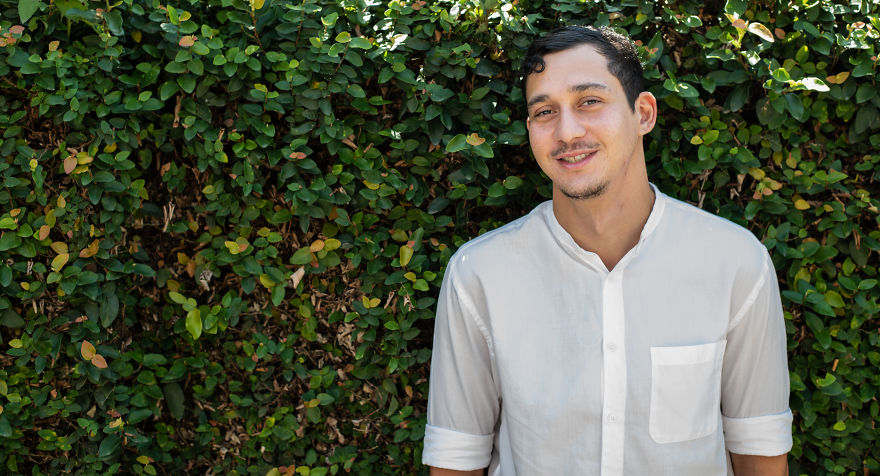
“It is okay for me to reduce internal suppressions in the struggle for reason; we are not limited to being one-dimensional men who engage with human existence solipsistically.”
Varun, Nepal

“Its okay for me to be afraid. The notion of fear is always held in relation to failure for boys. I’ve realized that being afraid opens opportunities for learning. In today’s day and age I’ve noticed men reacting irrationally because they are afraid to show people that they do not know something.”
Caspar, The Netherlands

“It’s okay for me to be insecure. I have always felt like, as a man, I am supposed to be confident and dominant, and not supposed to ever feel shy or insecure. This pressure of masculinity made it very difficult for me to deal with my insecurities. Learning to accept them helped a lot in understanding, and in the end, dealing with them.”
Adam, Canada

“It’s okay for me to ask for help. There is a study that says suicide rates are much higher for men than for women. This is because men and boys are much less likely seek help when they need it. You shouldn’t have to qualify for it. Anyone, regardless of their gender, should feel they can ask for help. This should be accepted and it should be what is considered normal.”
Alberto, Spain
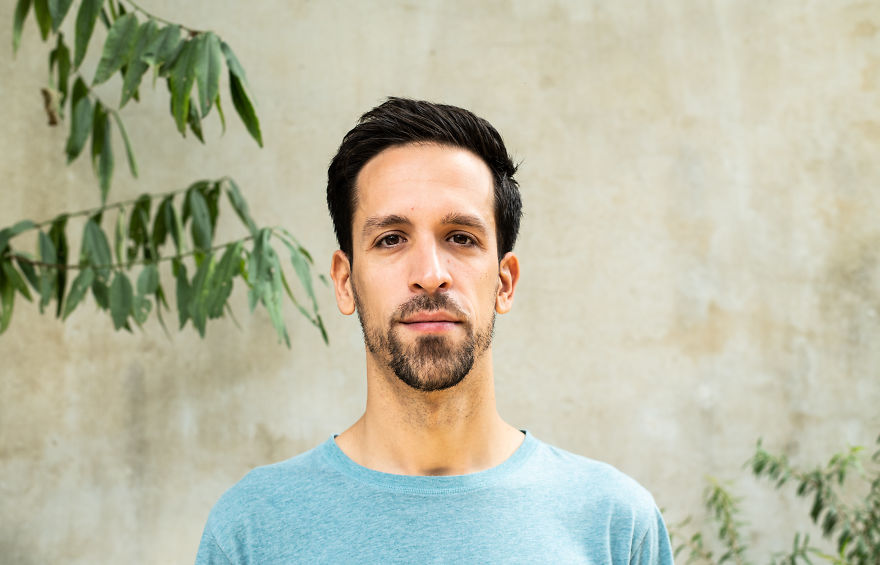
“Its okay for me to disagree with the classic stereotype of what it means to be a “gentleman”. Among the many, there is a very romanticised ideal of gentlemen and how they are meant to behave that exists and it is even imposed on men by some women. I am not saying I disagree with being polite and respectful but with how we are expected to conduct ourselves in certain situations. For example, the idea that men must earn more, be more responsible and hold higher positions to those of women, is not correct. This behaviour also feeds into and creates gender inequality. Men face a lot of pressure to live up to these very specific ideologies and if we don’t we fall short.”
Sushrut, Nepal

“It’s okay for me to wear make-up. Being a straight man affords me the privilege of being comfortable. Because, as a man, I sit at the very center of the system that creates the dominant narratives about the world, I can always feel comfortable that my act of self expression is valid. However, people who don’t identify as straight men don’t have the same luxury. The very act of self expression can be fraught with inconveniences. So it is important for me that I use my relative position of privilege to highlight ways in which non-traditional modes of expression are equally valid. Presenting myself in traditionally feminine ways is a way for me to assert that healthy masculinity allows a space for expressions that are as varied as the people who make them.”
Steven, Belgium

“It’s okay not to embody what society defines a ‘real man’ to be. There is an all-encompassing structure surrounding what being a ‘real man’ is all about. It dictates everything from a man’s behavior and posture to the way a man should walk, even to the way a man should dance. I definitely don’t dance like a real man. It goes as far as having your legs crossed while sitting, the way to treat women, friends… the way to treat everything around you. It pushes your ego and testosterone above everything else. This idea of a ‘real man’ is confining and unfortunately, is what I’ve put in my own brain, often dictating my thoughts, actions and believes, of course, who else decides what a ‘real man’ is? We have created this whole idea of ‘the real man’ but I don’t feel like that is what I am. I have certainly acted like it a lot of times but I don’t want to do that anymore. I want to push myself to not let my ego run everything else there is about me. Going against this idea takes away all these boundaries that I, that we as men are told define us. Suddenly I feel like I have this borderless existence, suddenly I can act and behave in the exact way that I want to even if it is not what ‘a real man’ would do, which gives me so much freedom. It liberates me. It’s taken me out of this box that I have put myself in because I am a man and so I have to qualify as a man and be this individual that is “manly”. But now I’m like – screw that, I’m going to be whatever I feel like I want to be… It has given me so much liberation… I can breathe again.”
Max, Nepal
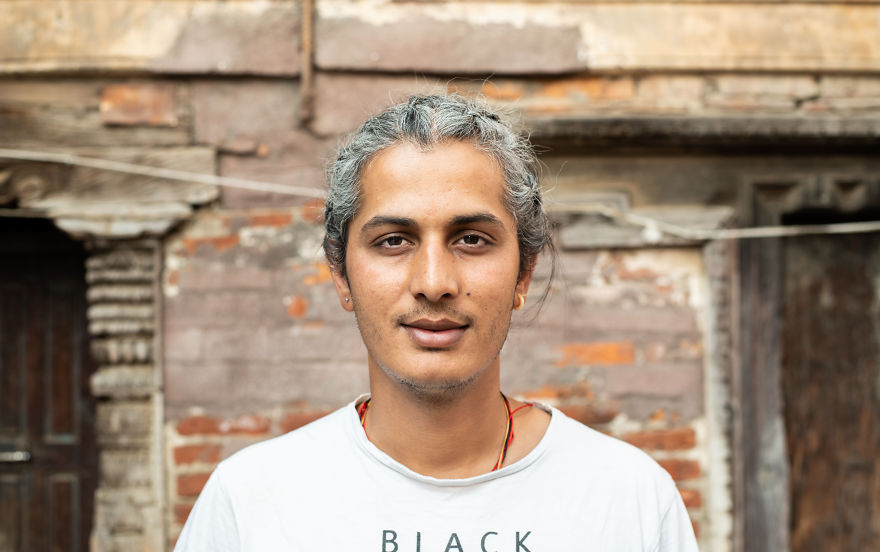
“It’s okay for me to be feminine. I have been told multiple times by others that my hand gestures are really girly. I cared a few times but then I realized this is something I can’t really control. People have also told me that face my looks very girly and I could easily pass as a girl. Now, what can I do about looking like me? So I guess, it’s okay for me to have a “beautiful face” (darn I said it!). Regardless, I can’t do anything about how I look. I am reminded about an incident last month in the Hyatt Hotel in Mumbai. I ordered room service and opened the door after the bell rang. I was wearing bathrobes and my hair was down. The guy looked at me and said good evening “MAM”, I replied in a very husky voice to disappoint him, “good evening please come in and put the food on table”. He immediately turned blue and started apologising and offering me freebies to please me. All this time I remained cool and composed and thinking why can’t a guy have long hair and more feminine features and just be seen as a man? The thing is I am sure he thought I was a transgender or something… So I guess it’s okay for me to be mistaken as a woman or transgender. The man that I am is not dependent or affected by what others think!”
Fabio, Brazil
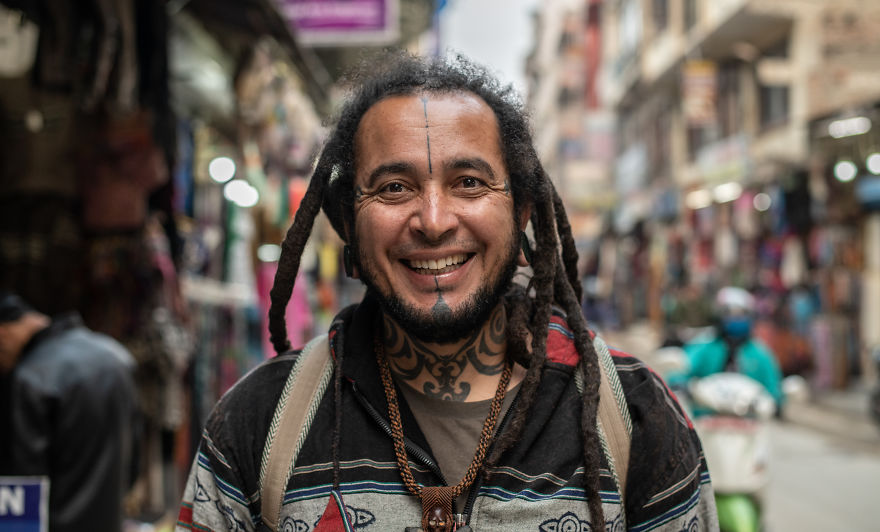
“It’s okay for me to be a man who isn’t afraid to shows my emotional side. My emotions are a part of who I am. Having the strength to be open about this and not hide is pure freedom.”
Rajen, USA/Nepal

“It’s okay for me to value love and relationships more than sex. In my generation, casual sex is considered more acceptable and less taboo than of days past. While a promiscuous woman is still frowning upon much more by society than a promiscuous man is, I feel that society considers men who aren’t that interested one night stands to be less “manly”. Television, music, and movies have all glorified having casual sex over having a relationship so much so that young men tend to believe it’s a defining characteristic of being a “true man.” Obviously, there’s no problem with both men and women having casual sex and not developing their relationship any further but there’s also no problem in anybody wanting to have physically intimate relations only with people they feel emotionally attracted to.”
Dan, USA
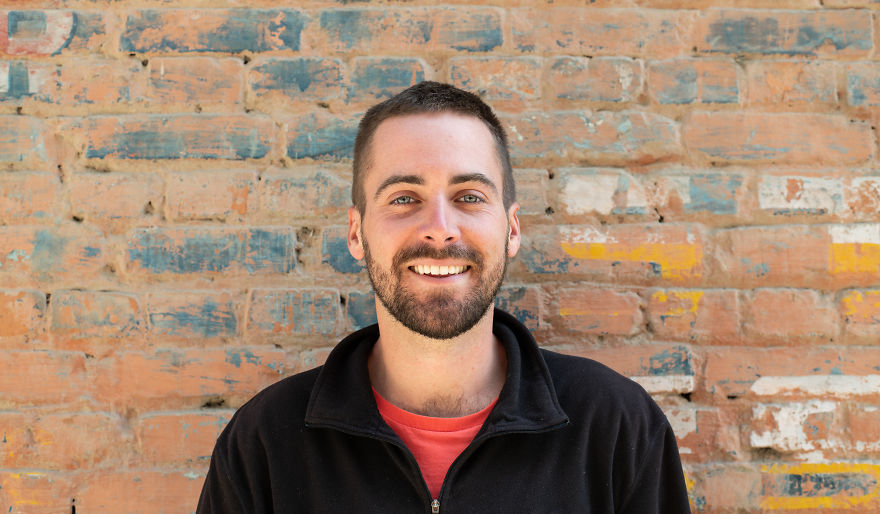
“It’s okay for me to be passive. I don’t enjoy confrontation yet I am constantly made to feel as though I should be tough in the face of it. I don’t want to be expected to fight back when somebody throws a punch or start yelling when somebody insults me just because I’m a man.”
Lucas, France

“It’s okay for me to be classified as a sensitive guy. Men often hide themselves when they are feeling sensitive to things or situations, it’s like it is a matter of pride. The pride should come from not feeling the need to hide and being who we are.”
Alberto, Italy
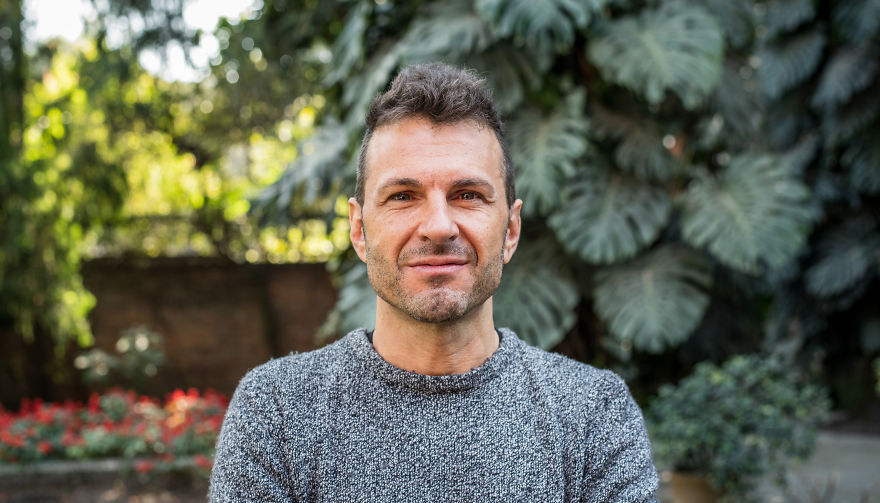
“It’s ok for me to reveal my weaknesses in front of women, accepting that I am not always right and showing my vulnerability, my feelings and my emotions. I don’t wish to be the kind of man that believes he is right all the time and hides his weaknesses, pretending to be in control of everything. Whenever this happened in my past, I messed up my relationships, I didn’t listen and wasn’t being aware of the other side’s world and sensibility. I realize I was projecting my image as a strong successful man, what I thought a man should be at the time. I caused out of hurt back and forth.”
Raphael, Germany/France

“Its okay for me to do the ‘little things” for my female friends or girlfriend when in a relationship. For example, I once knelt down in the street to tie my friends shoe lace that had come undone, this took her by surprise and said she doesn’t know many men who would do that, especially in public. Many men feel doing such things are not “manly” and worry they would get mocked by their male friends or ‘macho’ men.”
Suvash, Nepal

“It’s ok for me to feel like going against grain. I feel that society establishes a lot of norms of what people should be, how they should look or how they should behave. “Going with the grain” would be what the normal man would do while shaving and looking clean etc for the workplace which sets this clean cut image as “professional” or “presentable” overlooking what that individual is really like or how capable they might be. “Going against the grain” would be the opposite of this and just being comfortable with yourself and not adhering to the norms established by society. In order to progress, the world needs to get over these preconceived notions and just be inclusive of every individual living in it regardless of image, gender, religion, “social status” or beliefs.”
from Bored Panda http://bit.ly/2GpzVs1
via IFTTT